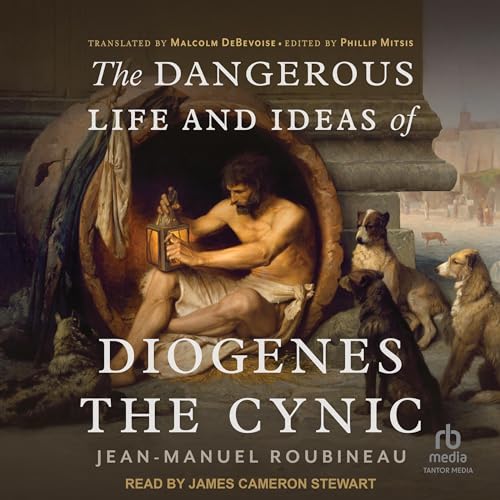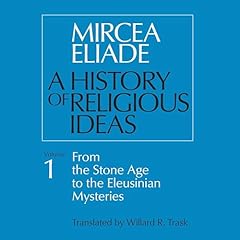
The Dangerous Life and Ideas of Diogenes the Cynic
Failed to add items
Add to Cart failed.
Add to Wish List failed.
Remove from wishlist failed.
Adding to library failed
Follow podcast failed
Unfollow podcast failed
 Prime members: New to Audible?
Prime members: New to Audible?Get 2 free audiobooks during trial.
Buy for $14.66
-
Narrated by:
-
James Cameron Stewart
The ancient philosopher Diogenes—nicknamed "The Dog" and decried by Plato as a "Socrates gone mad"—was widely praised and idealized as much as he was mocked and vilified. A favorite subject of sculptors and painters since the Renaissance, his notoriety is equally due to his eccentric behavior, scorn of conventions, and biting aphorisms, and to the role he played in the creation of the Cynic school, which flourished from the 4th century B.C. to the Christian era. Jean-Manuel Roubineau paints a new portrait of an atypical philosopher whose life left an indelible mark on the Western collective imagination and whose philosophy courses through various schools of thought well beyond antiquity.
Roubineau sifts through the many legends and apocryphal stories that surround the life of Diogenes. Was he a counterfeiter? Did he meet Alexander the Great? Was he an apologist for incest, patricide, and anthropophagy? How did he actually die? Roubineau retraces the known facts of Diogenes' existence.
Beyond the rehashed clichés, this book inspires us to rediscover Diogenes' philosophical legacy—whether it be the challenge to the established order, the detachment from materialism, the choice of a return to nature, or the formulation of a cosmopolitan ideal strongly rooted in the belief that virtue is better revealed in action than in theory.
©2023 Oxford University Press (P)2024 TantorListeners also enjoyed...




















People who viewed this also viewed...


















Diogenes is something else!
Something went wrong. Please try again in a few minutes.
I enjoyed this
Something went wrong. Please try again in a few minutes.
Diogenes the man, the myth, the dog
Something went wrong. Please try again in a few minutes.
History
Something went wrong. Please try again in a few minutes.
Thank you Diogenes!
The Dog Lives On
Something went wrong. Please try again in a few minutes.


